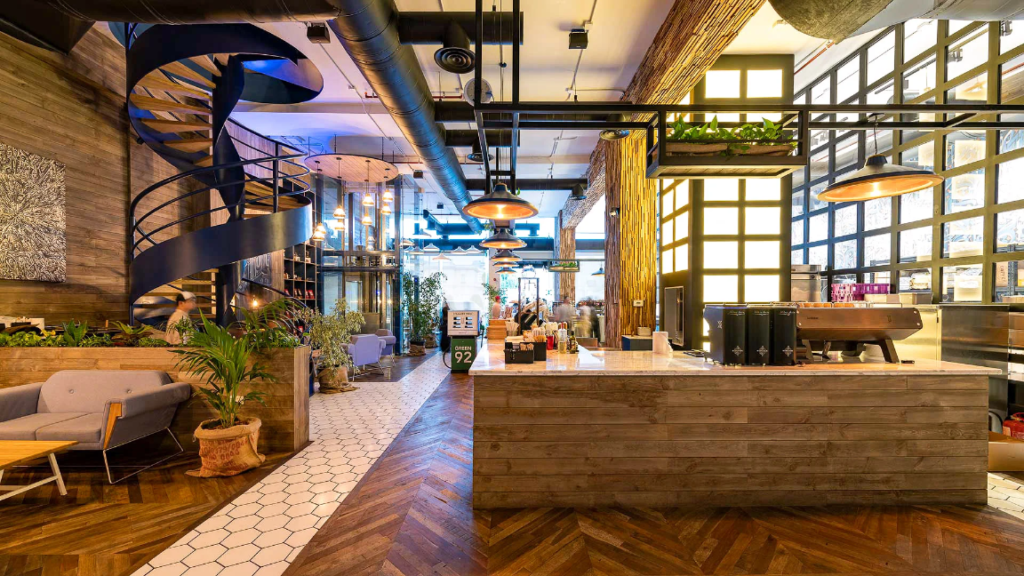Saudi Arabia lifestyle for remote workers has gained global attention as the kingdom moves toward modernization and economic diversification. With the launch of Vision 2030 and the rise of digital work culture, Saudi Arabia is opening its doors to international remote workers and digital nomads. But the question remains: is it a lifestyle of comfort or a test of patience?
In this article, we explore the key factors that shape the Saudi Arabia lifestyle for remote workers. From luxury and technology to culture and connectivity, here’s a full look at the comforts and challenges of living and working remotely in the kingdom.
A New Era of Remote Work in Saudi Arabia

Saudi Arabia is no longer only known for oil and religious tourism. The government is working to attract global talent by investing in smart cities, digital infrastructure, and foreign worker-friendly policies. Places like NEOM and Riyadh are being positioned as hubs for innovation.
For remote workers, this means more flexible visa options, better internet, and modern workspaces. The country is actively trying to create an ecosystem where digital professionals can thrive.
1. Reliable Internet and Infrastructure
One of the biggest comforts in the Saudi Arabia lifestyle for remote workers is the strong internet infrastructure. High-speed internet is widely available in major cities like Riyadh, Jeddah, and Dammam. Saudi Arabia ranks high in mobile internet speed and 5G coverage, making it suitable for those who rely on constant connectivity.
Coworking spaces are also growing in number, offering modern, quiet, and productive environments. Companies like Regus and The Space provide shared offices with all the needed facilities, including fast Wi-Fi, meeting rooms, and coffee bars.
2. Cost of Living: Affordable or Pricey?
The cost of living in Saudi Arabia is one of the mixed aspects of remote life. While some areas are affordable, especially compared to cities in Europe or the U.S., others can be costly.
Accommodation can range from budget-friendly apartments to high-end serviced residences. Food, transport, and internet costs are generally moderate. However, imported products and international schools (for families) can be expensive.
For single professionals, managing finances can be easy if they choose the right city and lifestyle. Riyadh and Jeddah offer more variety in housing and dining, while newer regions like NEOM are still developing.
3. Cultural Adjustment: Respect and Adaptation
The Saudi Arabia lifestyle for remote workers comes with cultural expectations. The kingdom follows Islamic traditions and conservative practices. Remote workers from liberal societies might find it challenging at first, but with time and respect, integration is possible.
Men and women are expected to dress modestly. Alcohol is banned, and public behavior must remain respectful. However, recent reforms have allowed more social freedom, and events like Riyadh Season offer entertainment options for expats.
Understanding cultural norms and being respectful is key to enjoying life in Saudi Arabia.
4. Climate: A Hot Reality to Face
Saudi Arabia has a desert climate with extremely hot summers. Temperatures can rise above 45°C in peak months. For remote workers not used to such heat, this could be a serious challenge.
However, modern buildings, workspaces, and homes have excellent air conditioning. Indoor work is comfortable, but outdoor travel needs planning.
Those who enjoy warm weather may find the Saudi climate suitable, especially in the cooler months between November and March.
5. Visa Reforms and Residency Options
Recent changes in visa policies have made it easier for remote professionals to enter and live in Saudi Arabia. The new premium residency system offers long-term stay and allows foreign workers to sponsor family members.
Digital nomads can also benefit from tourist visas that are now available to over 50 countries. These reforms are part of Vision 2030, aiming to open the kingdom to the world and attract global expertise.
6. Safety and Social Environment
Saudi Arabia is considered one of the safer countries in the Middle East. Cities are clean, well-patrolled, and crime rates are low. This adds a layer of comfort for remote workers, especially women and families.
However, making friends and building a social circle may take time. English is widely spoken in business areas, but learning basic Arabic can help a lot in social settings.
There are several expat communities and events, especially in major cities, making social integration easier over time.
7. Entertainment and Travel Options

A major shift in Saudi Arabia lifestyle for remote workers is the rise of entertainment. Cinemas, concerts, cafes, and shopping malls are now common. The kingdom is promoting tourism with beautiful spots like AlUla, the Red Sea coast, and desert safaris.
Weekend getaways are easy and affordable. For remote workers, this means they can balance work and leisure without leaving the country.
Additionally, domestic air travel is cheap and quick. Major cities are well-connected, and travel apps make navigation easy for foreigners.
Is It Comfortable or a Challenge?
The Saudi Arabia lifestyle for remote workers offers both comfort and challenges. Fast internet, growing infrastructure, safety, and luxury amenities make it attractive. At the same time, cultural differences, climate, and limited social freedom (in some regions) can feel restrictive.
For many digital nomads and professionals, the key is mindset. Those who come with respect, patience, and curiosity often find the kingdom rewarding. The lifestyle may not suit every remote worker, but for those who adapt, Saudi Arabia has much to offer.
Final Thoughts
As Saudi Arabia opens its gates to global talent, the remote working culture is expected to grow. The kingdom is rapidly changing, and those who join this transformation early may enjoy benefits that others miss out on.
For remote workers seeking a mix of tradition and modernity, safety and opportunity, the Saudi Arabia lifestyle could be an exciting new chapter.
Also Read – 7 Surprising Lifestyle Benefits of Gated Communities in Saudi Arabia



